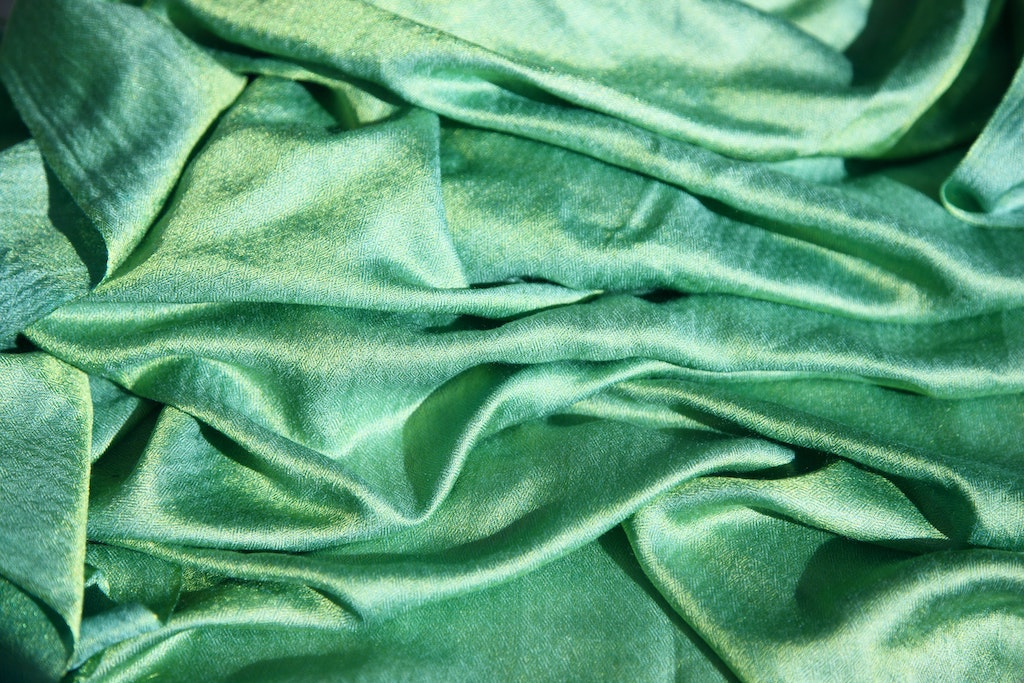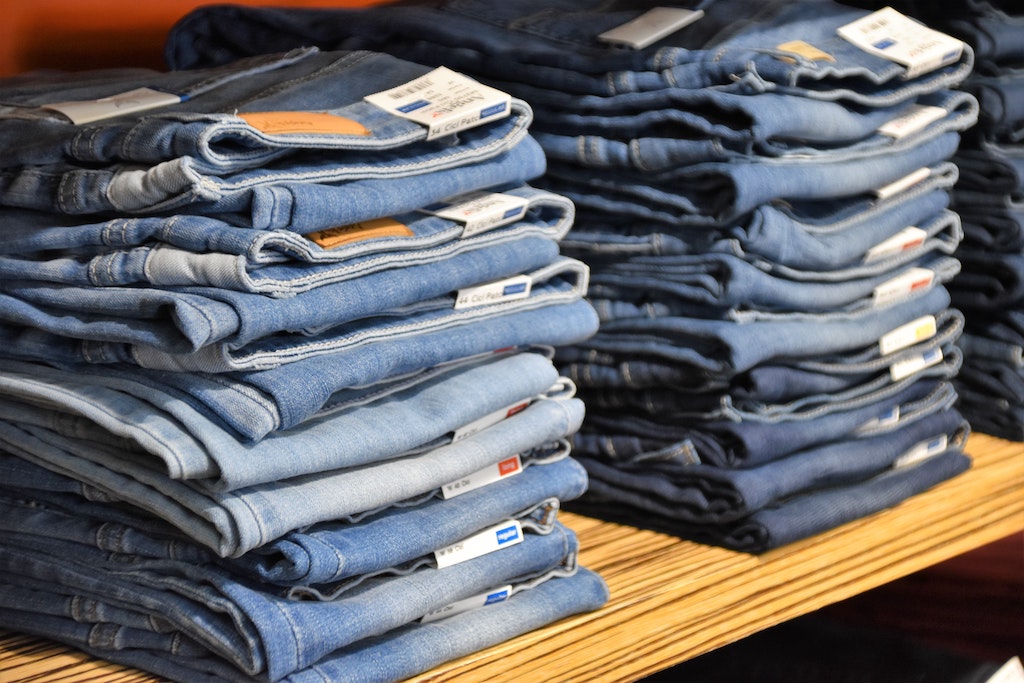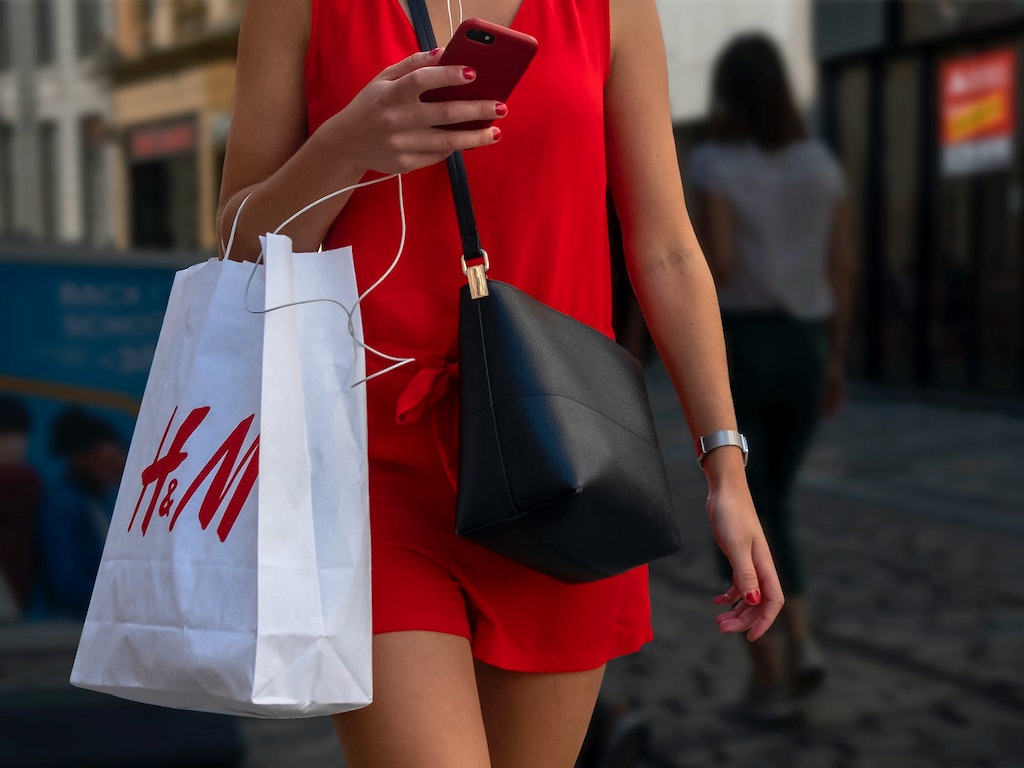4 Mins Read
Most fashion brands are “addicted to greenwashing”, says a new report. Some of the worst offenders making false or misleading claims include H&M, ASOS, and M&S. The report also called out brands for lack of transparency, among them Lululemon, Patagonia, and Burberry.
Released by the nonprofit Changing Markets Foundation, the new report finds as many as 59% of all green claims by European and U.K. fashion brands are misleading. Despite pledges to reduce their environmental footprint, a large majority of brands are still reliant on fossil fuel-based synthetic fibres. Some of them are also failing to show credible information about how they plan to reduce their environmental footprint.
Worst offenders
H&M topped the list for the number of false claims, according to the report. As many as 96% of the company’s claims flouted competition and market guidelines in one way or another. Other “worst offenders” for greenwashing include ASOS with 89% of their claims misleading, and M&S with 88%.
One of the biggest shocks came from H&M’s Conscious Collection, which was found to contain a higher proportion of synthetic fibres than its fast-fashion line. While the former contained 72%, the latter had 61%.

Almost 50 major fashion players were analysed as part of the research on the use of synthetic fibres. It collected data from questionnaires, public information, and online shop analysis. Changing Markets also assessed more than 4,000 products from 12 brands, from high street to luxury.
The problem with synthetic fibres
Synthetic fibres were the focus of the report because these materials still rely on fossil fuels like oil and fracked gas for production. Currently, the oil required to produce synthetic fibres exceeds the annual oil consumption of Spain, said the report.
One example of a synthetic fibre is virgin polyester, a fabric that many brands have now shunned in the name of sustainability. However, Changing Markets says that other less well-known synthetics are still being used.
“Some brands are making commitments to move away from using virgin polyester, [but] they make no such commitment regarding synthetics in general,” wrote the authors.

Brands are making commitments to move away from using virgin polyester, [but] no such commitment regarding synthetics in general.
Synthetics Anonymous, Changing Markets Foundation
According to the report’s product assessment, 85% of all Boohoo items contain synthetics. Inditex, the parent company of Zara, uses the most synthetics by weight.
“While brands are quick to capitalise on consumer concern by using sustainability as a marketing ploy, the vast majority of such claims are all style and no substance,” said Urska Trunk, campaign manager at Changing Markets.
Downcycling plastic: not a solution
The report also highlighted the lack of real circular solutions being adopted by brands. In an attempt to go green, many are turning to fibres made from recycled single-use plastic bottles. For the authors, this is simply “a false solution because it is a one-way street to landfill or incineration.”
The vast majority of such claims are all style and no substance.
Urska Trunk, Campaign Manager, Changing Markets Foundation
Around 85% of the brands surveyed in the report had used recycled plastic bottles, with H&M again at the top. 90% of H&M’s recycled polyester comes from bottles.
Commenting on the widespread use of downcycled plastic, Trunk says that brands are “dragging their feet on embracing truly circular solutions.”
“[They are] not making the necessary investments to ensure a future in which clothes can be recycled back into clothes,” she added.

Read: 80% of shoppers want plastic waste warning labels on clothes
Brands are not making the necessary investments to ensure a future in which clothes can be recycled back into clothes.
Urska Trunk, Campaign Manager, Changing Markets Foundation
Lack of transparency over green claims
One of the major failings among fashion brands is their lack of evidence to support their sustainability claims, said the report. Some products, for instance, were labelled as “responsible” but did not specify the quantity of recycled content.
Among some of the worst-performing brands that have “minimum to no transparency” over their use of synthetic fibres include Primark, Boohoo, Nike and surprisingly, Patagonia.
Despite being a forerunner in their reputation for sustainable and value-led branding, Patagonia had refused to respond to Changing Markets’ survey and failed to disclose its use of synthetics.
“While it encourages people to ‘buy less, demand more’ and to ‘join the fight against irresponsible, fast-fashion manufacturing’ it makes no commitment to move away from synthetics altogether,” wrote the researchers.
Patagonia was also put under the spotlight for its replacement of virgin polyester with recycled ocean plastics. The report criticised the approach as one that “does little to stop the flow of plastics into the environment and only deals with the aftermath of the plastic pollution problem.”
Lead image courtesy of Unsplash.




